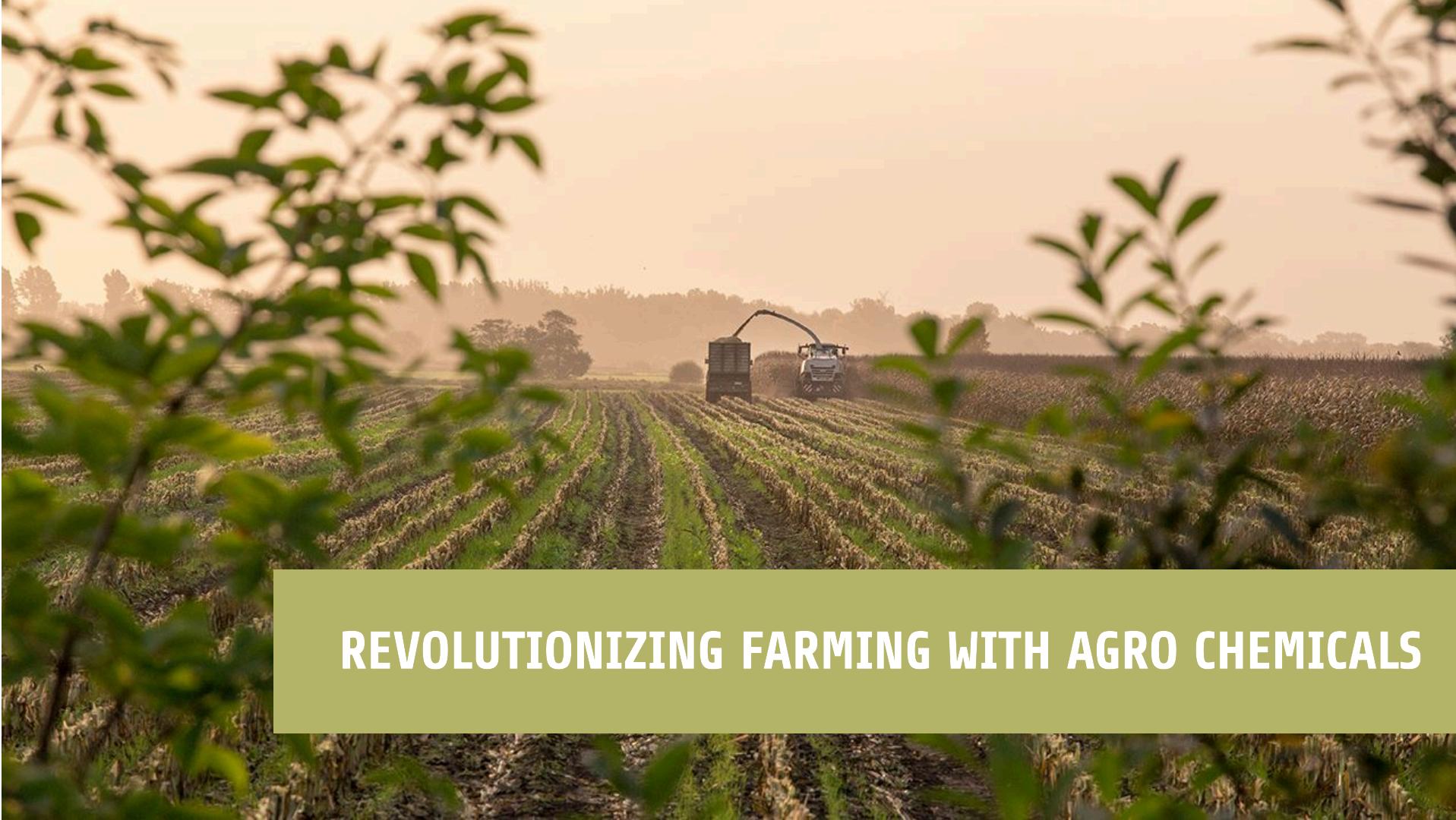Agro Chemicals: The Backbone of Modern Farming and Distribution

Agrochemicals, including pesticides, fertilizers, and herbicides, are vital tools for enhancing agricultural productivity. They play a crucial role in improving crop yields, ensuring food security, and promoting sustainable farming practices. As the global population grows, the demand for food production rises, highlighting the increasing importance of agrochemicals in modern agriculture. Farmers, distributors, and agrochemical companies must collaborate to ensure the effective and responsible use of these chemicals to fulfill the demands of the market while preserving the environment.
What Are Agro Chemicals?
Agrochemicals are substances or mixtures of substances used in farming to improve the health and productivity of crops. They fall into various categories, including:
1. Fertilizers: These chemicals provide essential nutrients to crops, ensuring they grow healthy and strong. Fertilizers can be organic or synthetic, with nitrogen, phosphorus, and potassium being the primary nutrients required for plant growth.
2. Pesticides: Pesticides are essential for preventing significant crop losses and are used to protect crops from diseases and pests. They include insecticides, fungicides, and rodenticides, which control different types of threats to crops.
3. Herbicides: These chemicals help control unwanted plants or weeds that compete with crops for sunlight, water, and nutrients. Herbicides are vital in maintaining a weed-free environment for optimal crop growth.
4. Growth Regulators: These chemicals influence plant growth by affecting their development processes. Growth regulators help manage flowering, fruit set, and ripening, leading to better harvests.
Importance of Agro Chemicals in Modern Farming
Agro-chemicals have revolutionized the way we approach farming. Their usage has led to improved crop yields, reduced labor costs, and increased food production efficiency. Some of the key benefits include:
● Enhanced Crop Protection: Pesticides and herbicides significantly protect crops from pests and diseases, which can otherwise cause extensive damage to harvests. This helps reduce crop loss and ensures a stable food supply.
● Higher Crop Yields: Fertilizers provide the necessary nutrients that crops need to thrive. With the right application, they can significantly increase crop yields, allowing farmers to produce more food in less time.
● Improved Food Quality: Agrochemicals can help control the appearance and shelf life of crops, ensuring that produce is of high quality when it reaches the market.
● Environmental Sustainability: By using agrochemicals responsibly, farmers can minimize environmental harm, increase the efficiency of water and soil usage, and reduce the need for extensive land use.
The Role of Agro-Chemical Distributors
Agrochemical distributors are an essential link between manufacturers and farmers. They ensure that agrochemical products are readily available in the market and help farmers choose the right products for their needs. Distributors work closely with manufacturers to understand product specifications and educate farmers on the correct usage and application methods to maximize effectiveness.
Some of the key responsibilities of agrochemical distributors include:
● Product Availability: Ensuring that farmers have access to a wide range of agrochemical products at competitive prices.
● Advisory Services: Offering expert advice on the proper use of agrochemicals, ensuring that they are used safely and effectively.
● Education and Training: Providing training sessions for farmers on the benefits and risks of agrochemical products, including best practices for minimizing environmental impact.
Responsible Use of Agro Chemicals
While agrochemicals have many benefits, their improper use can have badly effects on the human health and environment. Pesticide overuse, for example, can lead to resistance to pests, contamination of water supplies, and harm to non-target species. Therefore, farmers and distributors must be informed and educated on the safe handling, application, and disposal of these chemicals.
The best practices for the responsible use of agrochemicals include:
● Following Manufacturer Guidelines: Always use agrochemicals according to the manufacturer's instructions to avoid overuse or misuse.
● Regular Monitoring: Monitor crops regularly for pest infestations and nutrient deficiencies, and apply agrochemicals only when necessary.
● Integrated Pest Management (IPM): This approach involves combining biological, cultural, and chemical practices to manage pests in an environmentally responsible way.
NACL Industries Ltd: Leading the Agrochemical Industry
NACL Industries Ltd is a recognized leader in the agrochemical sector, offering a wide range of high-quality agrochemical products that meet the growing demands of modern agriculture. With a commitment to innovation and sustainability, NACL Industries provides farmers and distributors with reliable, effective, and environmentally friendly solutions. Whether it's crop protection, nutrition, or growth regulation, NACL Industries Ltd offers the best agrochemical products to help enhance crop productivity and promote sustainable farming practices.
Conclusion
Agrochemicals are an essential component of modern agriculture, helping to increase productivity, protect crops, and ensure food security. However, their responsible use is vital to minimize environmental and health risks. NACL Industries Ltd is at the forefront of offering the best agrochemical products that empower farmers and distributors to make a positive impact on agriculture while ensuring sustainability.
For more information about agrochemicals and their applications, visit NACL Agrochemicals Products for expert insights and solutions.
